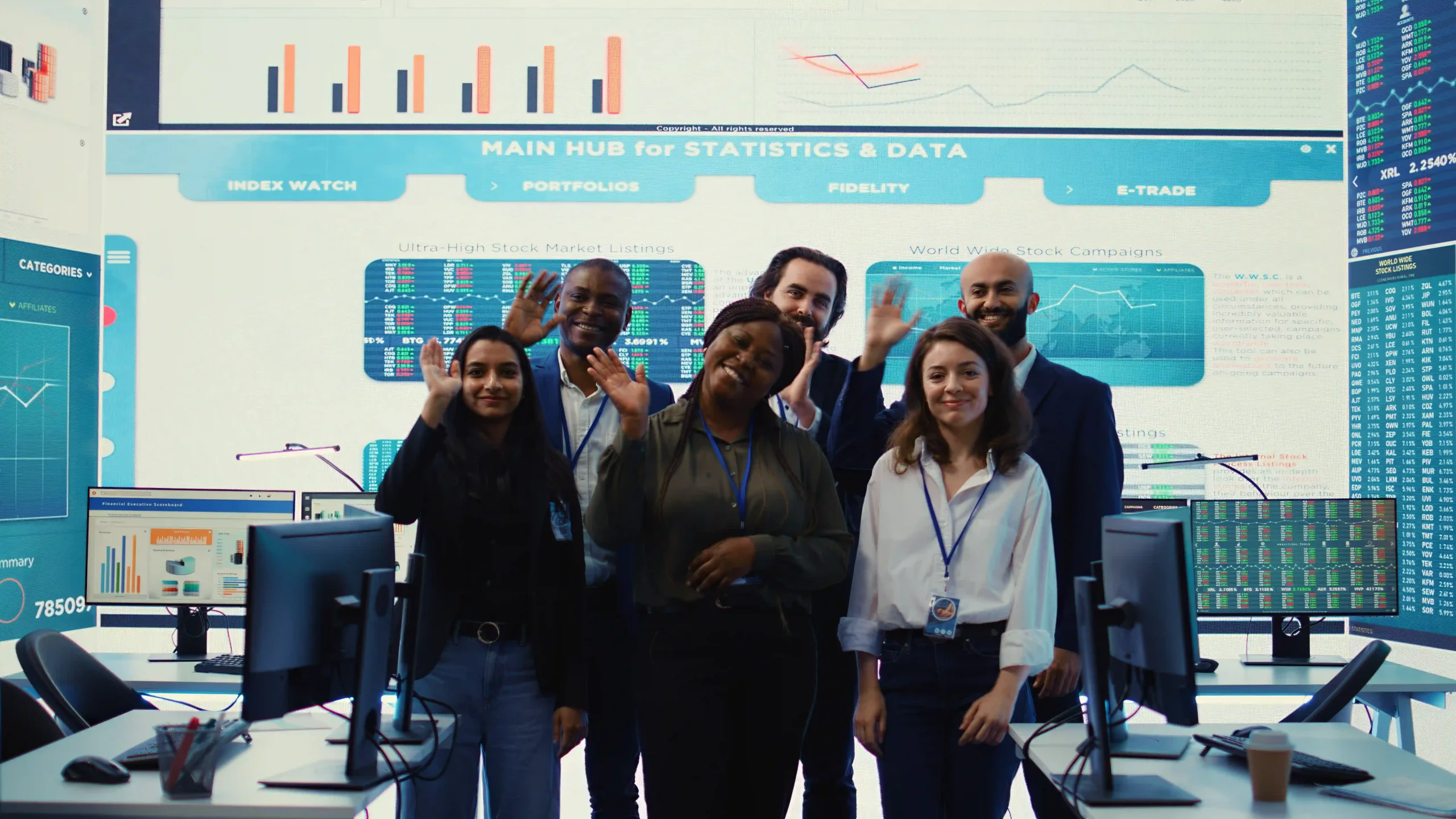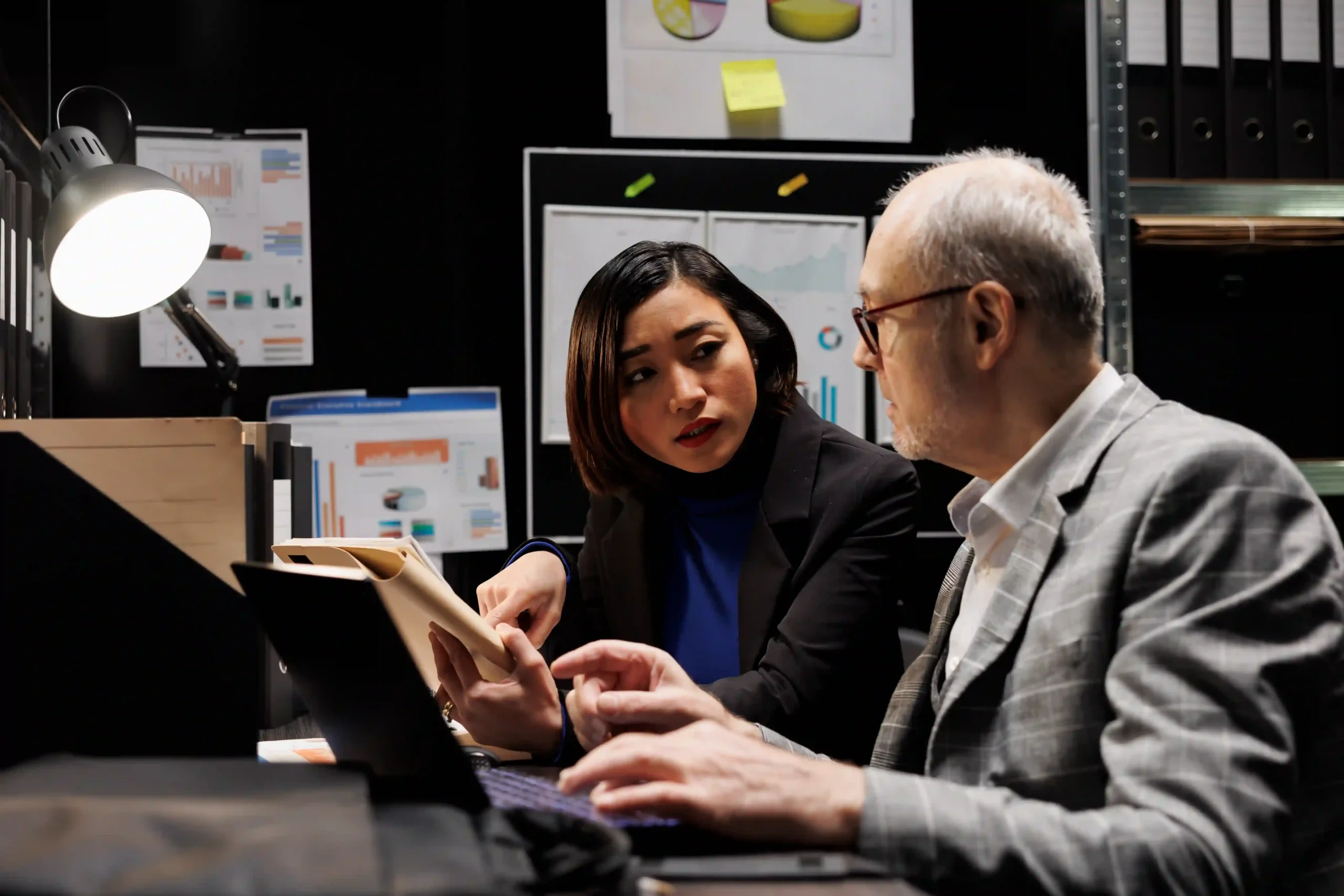Logistics Innovation Day is an annual event that focuses on groundbreaking advancements in the supply chain industry. It’s where experts, businesses, and policymakers come together to discuss the latest technologies, trends, and challenges shaping global logistics.
This event is essential because logistics plays a crucial role in supply chain efficiency, cost reduction, and sustainability. Without continuous innovation, businesses risk falling behind in an industry that relies heavily on speed, automation, and real-time data.
At Tri-Link FTZ, we’ve seen firsthand how logistics innovation has transformed the industry. Thirty-five years ago, supply chain operations were heavily manual, and international shipping faced constant delays due to inefficient processes.
Today, with the rise of AI-driven predictive analytics, blockchain for supply chain security, and warehouse automation, we are witnessing a new era where businesses can move goods faster and with greater accuracy than ever before.
Logistics Innovation Day is the place where these advancements are showcased, allowing businesses to stay ahead of industry disruptions.

One of the biggest topics at Logistics Innovation Day is the impact of AI and automation on supply chain operations. Companies today are using machine learning algorithms to predict demand, optimize inventory, and improve delivery routes.
At Tri-Link FTZ, we’ve implemented AI-driven order fulfillment systems that analyze past shipping patterns to reduce delays and increase efficiency. Another major trend is blockchain technology, which enhances transparency and security in global supply chains.
By using blockchain, businesses can track shipments in real time, reducing the risk of fraud and lost inventory. This is particularly beneficial in Foreign Trade Zones (FTZs), where compliance with customs regulations is critical.
Sustainability in logistics is also a growing focus. Companies are adopting electric delivery vehicles, eco-friendly packaging, and carbon footprint tracking software.
At Tri-Link FTZ, we are working on initiatives to reduce waste in warehousing and optimize transportation routes to minimize environmental impact. Lastly, digital transformation is reshaping logistics through cloud-based platforms, Internet of Things (IoT) devices, and smart tracking systems.
These tools provide real-time data visibility, allowing businesses to make quicker and more informed decisions. Companies that fail to embrace digital transformation risk losing their competitive edge in an industry that is rapidly evolving. Read more here.
Attending Logistics Innovation Day provides companies with valuable industry insights and networking opportunities. Businesses that embrace logistics innovation gain a competitive edge by reducing costs, improving efficiency, and staying compliant with evolving regulations.
One of the biggest benefits is direct access to industry leaders and innovators. Logistics professionals can participate in panel discussions, workshops, and live demonstrations to understand how new technologies work in real-world applications.
At Tri-Link FTZ, we actively engage in industry events like this to stay ahead of supply chain challenges and implement best practices in our own operations. Another major advantage is learning how to navigate regulatory changes.
With supply chain disruptions becoming more frequent, businesses need to be proactive about compliance, customs regulations, and risk management. Attending Logistics Innovation Day helps companies prepare for future industry shifts and explore new ways to optimize their supply chain strategies.
At Tri-Link FTZ, we’ve seen firsthand how businesses that embrace logistics innovation gain a competitive advantage. One of the most impactful examples comes from a global e-commerce retailer that transformed its supply chain using automated warehouses and AI-driven demand forecasting.
By integrating robotic fulfillment centers, the company reduced order processing times from 12 hours to just 30 minutes, significantly improving customer satisfaction. Another success story involves a pharmaceutical company that needed a secure, transparent, and efficient way to track temperature-sensitive shipments.
By leveraging blockchain technology and IoT-enabled sensors, they ensured that their medical products remained within the correct temperature range throughout transit. This reduced product loss by 40% and improved compliance with government regulations.
In the third-party logistics (3PL) sector, one of the biggest challenges has been managing inventory efficiently across multiple locations. A leading logistics company tackled this by implementing a cloud-based warehouse management system (WMS) integrated with AI-powered analytics.
This allowed for real-time inventory tracking, automated order processing, and predictive demand forecasting, leading to a 25% reduction in stockouts and faster turnaround times. At Tri-Link FTZ, we have adopted similar innovative practices to improve efficiency in Foreign Trade Zones.
By integrating customs automation software, we have helped businesses streamline import/export processes, minimize paperwork, and reduce clearance times by up to 50%. These innovations ensure that companies operating in FTZs can maximize duty savings, improve compliance, and accelerate their supply chain. Read more here.

Despite the benefits of logistics innovation, businesses still face significant barriers when trying to adopt new technologies. One of the most common challenges is high implementation costs.
Many companies hesitate to invest in automation, AI, and digital transformation because of the initial expense. However, the long-term savings and operational efficiency gains far outweigh the upfront costs.
At Tri-Link FTZ, we advise businesses to start small by adopting scalable solutions that can be expanded as needed. Another hurdle is resistance to change among employees.
Logistics professionals who have been in the industry for decades may be skeptical about new technology and reluctant to adopt automated systems. To overcome this, businesses should invest in training programs and hands-on demonstrations to show how these innovations improve job efficiency rather than replace human workers.
Data integration is also a major challenge. Many companies still rely on legacy systems that don’t communicate well with modern logistics software.
This leads to inefficiencies, errors, and inaccurate forecasting. The solution is to invest in cloud-based platforms that offer seamless API integrations, allowing businesses to connect all their supply chain tools into one unified system.
Regulatory compliance is another roadblock. With supply chain disruptions, tariff changes, and evolving government regulations, businesses must navigate complex compliance requirements.
Events like Logistics Innovation Day help companies stay up to date on international trade laws, customs regulations, and sustainability policies. Finally, infrastructure limitations can slow down adoption.
Businesses operating in regions with outdated transportation networks, unreliable internet, or limited access to automation tools may struggle to implement logistics innovations. At Tri-Link FTZ, we encourage companies to collaborate with logistics providers and industry associations to find solutions that bridge these infrastructure gaps.
The logistics industry is evolving faster than ever, and companies that don’t embrace innovation risk falling behind. Looking ahead, we predict that AI-powered decision-making, predictive analytics, and sustainability-driven supply chains will continue to dominate the industry.
Autonomous delivery vehicles, drone shipments, and real-time tracking through IoT will become standard practices, making logistics more efficient and responsive to consumer demands. One of the biggest transformations will be in last-mile delivery.
Companies are already testing AI-optimized delivery routes, electric delivery vehicles, and smart lockers to reduce costs and emissions. At Tri-Link FTZ, we see this as a game-changer, especially for businesses looking to expand into e-commerce and direct-to-consumer markets.
Another area of focus is cybersecurity in logistics. As businesses become more digital, they also become more vulnerable to data breaches, cyberattacks, and supply chain disruptions.
Future logistics innovations will prioritize secure, blockchain-powered transactions to enhance transparency and prevent fraud. Businesses looking to stay ahead should attend events like Logistics Innovation Day to gain insights into emerging trends, connect with technology providers, and learn from industry leaders.
Investing in training programs, digital transformation strategies, and scalable automation tools will be crucial in navigating the next phase of logistics evolution. At Tri-Link FTZ, we are committed to helping businesses adopt the latest innovations in supply chain management.
Whether it’s through customized FTZ solutions, AI-driven inventory management, or compliance automation, we ensure that our clients remain competitive and agile in a rapidly changing logistics landscape.
Logistics Innovation Day is more than just a conference—it’s a roadmap for the future of supply chain management. Businesses that take part in this event gain critical insights, build industry connections, and position themselves as leaders in logistics innovation.
From automation and AI to sustainability and blockchain, the technologies shaping modern logistics are transforming the way companies operate. At Tri-Link FTZ, we understand the importance of staying ahead of industry disruptions.
With over 35 years of experience in third-party logistics and Foreign Trade Zones, we help businesses optimize their supply chains, reduce costs, and improve efficiency through innovative logistics solutions. If you’re looking to future-proof your supply chain and stay ahead of the competition, attending Logistics Innovation Day is a must.
The future of logistics is being written now—are you ready to be a part of it?
Share this article
We have other resources available upon request as well as one-on-one support and personalized answers, just like our services.
Simply contact us anytime and we’ll get back to you to answer your questions and provide meaningful answers that show you how Tri-Link supports your logistics, reduces costs, and accelerates efficiency.
Tri-Link delivers exceptional FTZ and 3PL services tailored to your global trade needs.
Our solutions combine innovation, quality, and efficiency to exceed your expectations and meet your specific requirements.